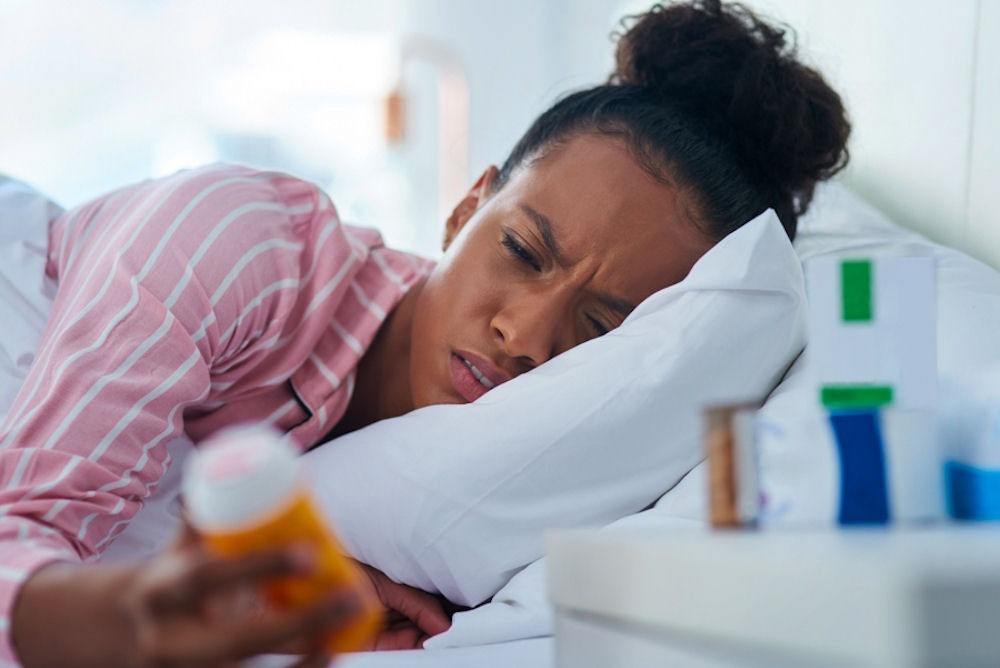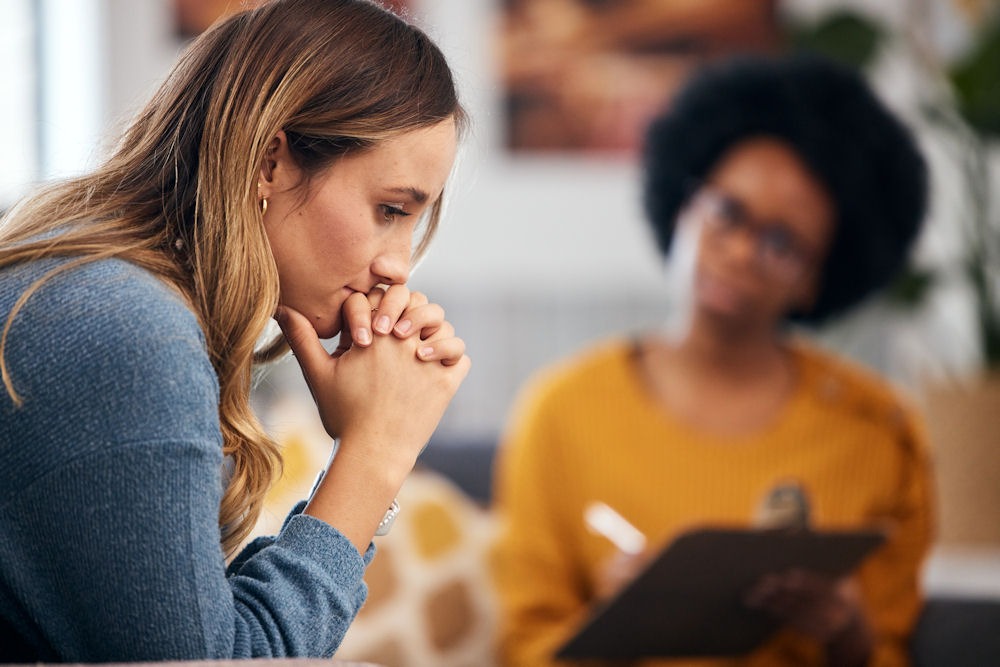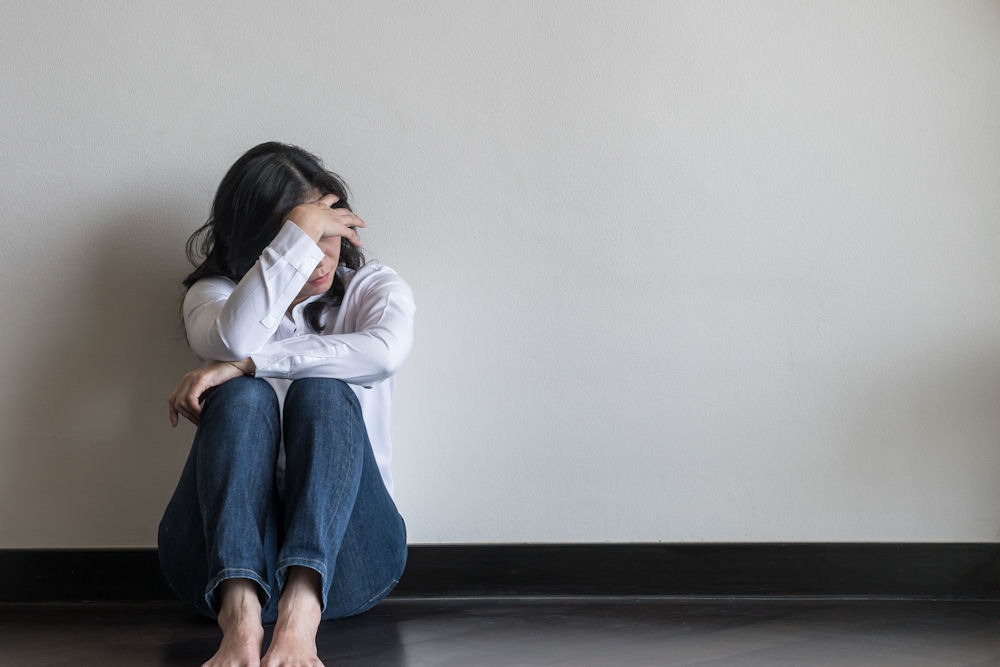Alcohol and many anxiety medications work to depress the central nervous system. When combined, they can cause:
- Extreme drowsiness
- Loss of coordination
- Breathing problems
- Life-threatening respiratory depression (a condition where breathing is slow and shallow or stops completely)
Anxiety medications and alcohol both depress the central nervous system, leading to sleepiness and relaxation. Combining them intensifies the sedative effects, causing people to become extremely drowsy and reducing their ability to function. This increases the risks of accidents, including driving incidents and falls.
Perhaps the most serious risk of mixing the substances is the suppression of the respiratory system. Both substances can slow breathing, and when taken together, the effect can be life-threatening. In severe cases, this can cause insufficient oxygen intake. This can lead to organ damage, brain injury, coma, and death.
Anxiety medications and alcohol can impair judgment, concentration, and decision-making ability when taken individually. Combining anxiety meds and alcohol can make these cognitive impairments worse and lead to a lack of coordination, slowed reaction time, and risky behaviors. This makes it dangerous to drive or operate machinery and increases the possibility of blackouts, where the individual has no recall of events that happened while under the influence.
Both alcohol and anxiety meds have the risk of psychological and physical dependence. Regular or high-dose use of both can lead to the development of tolerance, where higher doses are required to achieve the initial effects. This increases the risk of developing a substance use disorder (SUD) and severe withdrawal symptoms when discontinuing use.
The liver attempts to process both medication and alcohol simultaneously. This can cause a buildup of either or both substances in the body, resulting in an overdose. Even therapeutic doses of benzodiazepines, when combined with alcohol, can have fatal complications due to respiratory depression.
Alcohol might seem to relieve anxiety at first, but it can actually exacerbate underlying anxiety and depression symptoms in the long run. If it’s combined with anxiety medications, alcohol can counteract the effectiveness of the medication and worsen feelings of anxiety and depression.
Alcohol and some anxiety medications are processed in the liver. When they’re combined, it puts an added strain on the liver. This increases the risk of liver damage or impairs the liver’s ability to process medications effectively.
Which Anxiety Meds Interact with Alcohol
Most anxiety medications can react negatively with alcohol because of their shared effect of central nervous system depression. Here are the main types and their interactions:
- Benzodiazepines
Some examples of name-brand benzodiazepines are:
- Xanax (alprazolam)
- Klonopin (clonazepam)
- Valium (diazepam)
- Ativan (lorazepam)
- Tranxene (clorazepate)
Benzodiazepines increase the action of GABA, a neurotransmitter that slows brain activity. Alcohol also increases GABA activity, causing an intensified slowing of the central nervous system.
- Antidepressants (often prescribed for anxiety)
Examples of name-brand antidepressants include:
- SSRIs:
- Celexa (citalopram)
- Lexapro (escitalopram)
- Prozac (fluoxetine)
- Paxil (paroxetine)
- Zoloft (sertraline)
- SNRIs:
- Cymbalta (duloxetine)
- Effexor (venlafaxine)
- TCAs: Elavil (amitriptyline)
- MAOIs:
- Parnate (tranylcypromine)
- Nardil (phenelzine)
Alcohol can worsen the side effects, such as dizziness, drowsiness, and nausea, when mixed with SSRIs and SNRIs. It can also increase anxiety and depression and lead to liver damage in the long term. TCAs can increase drowsiness and cause blackouts. MAOIs can cause a dangerous spike in blood pressure, especially with fermented or aged alcoholic beverages.
- Beta Blockers: Inderal (propranolol)
Alcohol increases plasma levels of propranolol and increases side effects such as:
- Lightheadedness
- Dizziness
- Fainting
- Changes in heart rate
- Other Anxiety Medications
- Buspar (buspirone) can multiply drowsiness when combined with alcohol
- Vistaril, Atarax (hydroxyzine), this antihistamine can cause extreme drowsiness and dizziness, and should not be taken with alcohol
What are the Dangers of Mixing Alcohol and Medication?
 Combining alcohol with any medication, whether it’s over-the-counter (OTC), prescription, or even herbal remedies, can be dangerous and cause serious health difficulties. Alcohol and many medications cause side effects like dizziness, drowsiness, loss of coordination, nausea, and blood pressure changes on their own. But combining them significantly intensifies these effects and may lead to:
Combining alcohol with any medication, whether it’s over-the-counter (OTC), prescription, or even herbal remedies, can be dangerous and cause serious health difficulties. Alcohol and many medications cause side effects like dizziness, drowsiness, loss of coordination, nausea, and blood pressure changes on their own. But combining them significantly intensifies these effects and may lead to:
- Impaired judgment and increased drowsiness increase the risk of accidents
- Severe nausea and vomiting can cause dehydration
- Fainting and loss of coordination increase the risk of falls and injuries
Alcohol can also obstruct how your body absorbs, metabolizes, and excretes medications. This interference can cause serious organ damage, including liver failure or other health complications.
Combining alcohol with nonsteroidal anti-inflammatory drugs (NSAIDs) like naproxen or ibuprofen increases the risk of stomach ulcers and internal bleeding. Alcohol and acetaminophen can lead to serious liver damage. Strong pain medications like opioids (oxycodone) can also cause drowsiness, slowed breathing, and a higher risk of overdose.
Some antibiotics can cause a severe reaction with alcohol, leading to stomach pain, headaches, vomiting, and rapid heartbeat. Taking blood thinners and alcohol increases the risk of internal bleeding. By increasing stomach acid production, alcohol counteracts the effects of heartburn medication. Similarly, mixing alcohol and blood pressure meds can lower blood pressure excessively, increasing the risk of fainting and falling.
Self-Medicating with Alcohol
The concept of self-medication refers to using substances (alcohol, in this case) to help cope with episodes of psychological distress. The co-occurrence of mood and anxiety disorders with substance use is common. People with mood or anxiety disorders use substances to deal with the symptoms associated with their disorder. After a while, self-medication can become an independent SUD.
Why do people use alcohol to self-medicate? It’s because alcohol increases the effect of GABA, the neurotransmitter that slows brain activity, so at a low level, it can make you feel calmer or less anxious. But alcohol affects the chemistry of the brain, which increases the risk of panic disorder, depression, and impulsive behavior.
Some Drinks to Manage Anxiety
Several beverages can help you manage anxiety, such as:
- Herbal Teas
Chamomile, green, Lemon balm, and lavender tea are known for their calming and mood-lifting properties. Peppermint tea aids digestion and stress relief.
- Milk
Yes, milk contains an amino acid that can improve mood.
- Water
Adequate hydration is necessary for overall well-being and helps manage anxiety.
- 100% Fruit Juice
Fruit juices may improve one’s mood due to the vitamins and minerals they contain.
- Smoothies
Smoothies are a good way to get the fruits, vegetables, and other nutrients that may have calming effects.
Drinks to Avoid
- Alcohol–Although it may cause relaxation at first, it can make anxiety symptoms worse in the long run.
- Caffeine–Caffeine can worsen anxiety and panic attacks for some people.
- Soft drinks and energy drinks–These drinks are often high in sugar and caffeine, which can negatively impact physical and mental health.
Anxiety Treatment in Portland
If you’re struggling with anxiety and you live in or around Portland, OR, Crestview Recovery has the experienced mental health professionals that you need. And if you have been trying to handle it on your own by consuming alcohol (or any substance, for that matter), it’s not going to work. Your health is not a DIY project.
How to Stop Drinking
 Here are 12 ways to help you stop or curb your alcohol consumption:
Here are 12 ways to help you stop or curb your alcohol consumption:
- Put it in writing. Make a list of all your reasons to stop drinking.
- Set a drinking goal. Set a maximum limit and then stay below it.
- Keep a diary. Keep track of every time you drink, how much, and where you were.
- Don’t keep alcohol in your home. This helps limit drinking.
- Sip your drink slowly. And drink soda, water, or juice after an alcoholic beverage.
- Set some alcohol-free days. Try two or three days a week, then go for a month.
- Watch out for peer pressure. Practice saying “no” politely.
- Stay busy. Take a walk, go out to eat, try a new hobby.
- Ask for help. Let friends and family know that you need their support.
- Steer clear of temptation. Avoid people and places that make you want a drink.
- Stick with it. People who cut down or stop drinking only do it after several attempts.
- Think about non-alcoholic substitutions. Consider ordering an N/A beer or mocktail.
Talk To Crestview Recovery About Getting Sober
Crestview Recovery in Portland can help you get on your way to recovery from alcohol use disorder. And, if you’ve been using alcohol to relieve your anxiety symptoms, that is called a dual diagnosis. We have a program that can address both issues simultaneously, as they must be treated concurrently. If you’re unsure about what to do, whom to see, or where to go, please don’t hesitate to contact us. We can provide you with a full medical assessment and set you on the course to recovery.
































